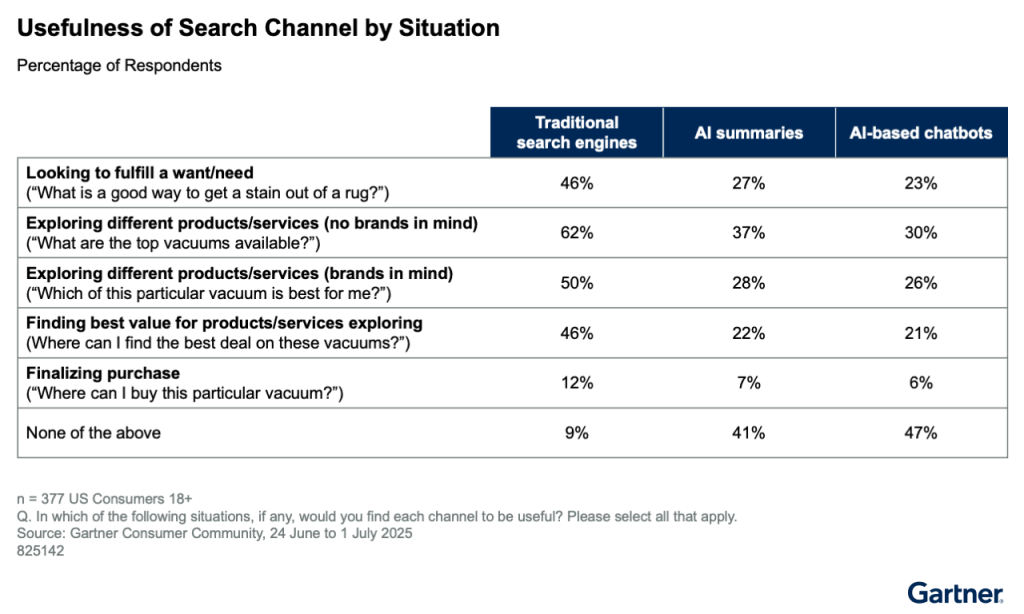A new survey from Gartner has found that more than half of U.S. consumers doubt the reliability and impartiality of AI-powered search results, a finding that underscores growing unease about the accuracy and bias of generative AI in online discovery. The report suggests that marketers may need to rethink their content strategies to regain user confidence as AI continues to reshape how information is surfaced and consumed.
The Gartner Consumer Community survey, conducted between June and July 2025 among 377 U.S. respondents, revealed that 53 percent of consumers distrust AI-driven search summaries. A further 41 percent said these generative AI overviews make search more frustrating compared with traditional search methods. The findings highlight a widening gap between technological advancement and user comfort, raising questions about how search engines and brands can balance innovation with transparency.
Consumer appetite for control emerged as a key theme. According to Gartner, 61 percent of respondents want the ability to toggle AI summaries on or off, an indicator that users value autonomy in shaping their online experiences. This preference for optionality suggests that while AI search tools may streamline discovery, users are wary of losing visibility into how information is selected and summarized.
“The impact of AI extends beyond improving the search experience, altering how consumers seek and interact with search platforms, and how marketers approach visibility,” said Noam Dorros, Director Analyst in Gartner’s Marketing practice. Dorros added that brands must “reinforce trust through comprehensive and reliable information,” recognizing that not all audiences will accept AI summaries without question.

The report found that consumers see AI-generated summaries as most helpful during the early stages of product research, such as initial comparisons. Yet, their usefulness drops sharply when shoppers move closer to a purchase decision. This suggests that while AI search tools may assist with surface-level exploration, they are less influential in later, higher-stakes decision-making phases.
For marketers, the findings present both a challenge and an opportunity. As AI integration in search engines accelerates, Google’s Search Generative Experience (SGE) and Microsoft’s Copilot Search among the most prominent examples, brands are under pressure to adapt their search strategies. Gartner recommends that companies build “topical authority” by consistently publishing accurate, detailed, and trustworthy content. This approach, the firm argues, will help brands remain visible in both AI-generated summaries and traditional search results.
The broader marketing industry has been debating how AI reshapes search visibility since generative tools began influencing rankings and result presentation in 2023. While early adopters have focused on optimizing for AI-driven snippets, the Gartner data suggests that user trust may become the defining factor in digital marketing effectiveness.
As Dorros advised, brands should develop multichannel visibility strategies that combine conventional SEO with AI optimization while prioritizing transparency. For marketers, that may mean rethinking how information is structured, sourced, and verified—especially as consumers increasingly question not just what they find online, but who shaped it.
